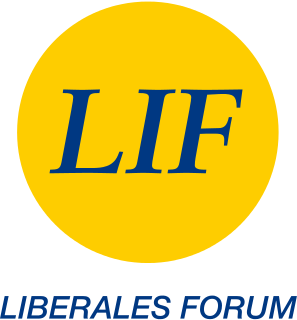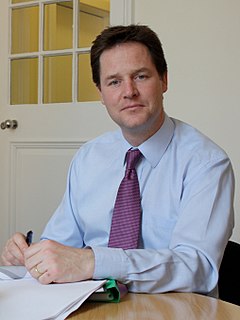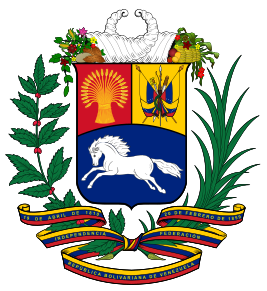
The politics of Austria take place in the framework of the federal parliamentary republic of Austria, with a President as head of state, and a Chancellor as the head of government. Governments, both local and federal, exercise executive power. Federal legislative power is vested both in the Federal Government and in the two chambers of Parliament; the National Council and the Federal Council. The Judiciary of Austria is independent of the executive and the legislature.

The Austrian People's Party is a Christian-democratic and conservative political party in Austria. A successor to the Christian Social Party of the late 19th and early 20th centuries, it was founded immediately following the reestablishment of the Republic of Austria in 1945 and since then has been one of the two largest Austrian political parties with the Social Democratic Party of Austria (SPÖ). In federal governance, the ÖVP has spent most of the postwar era in a grand coalition with the SPÖ. Most recently, it has been junior partner in a coalition government with the SPÖ since 2007. However, the ÖVP won the 2017 election, having the greatest number of seats and formed a coalition with the national-conservative Freedom Party of Austria (FPÖ). Its chairman Sebastian Kurz is the youngest Chancellor in Austrian history.

The Liberal Forum was a liberal political party in Austria. The party was active from February 1993 to January 2014, when the party merged into NEOS – The New Austria. The party was a member of the Liberal International and the Alliance of Liberals and Democrats for Europe Party.

The Gabonese Democratic Party, is the ruling and dominant political party of Gabon. Between 1968 and 1990 it was the sole legal party.
A voting age is a minimum age established by law that a person must attain before they become eligible to vote in a public election. Today, the most common voting age is 18 years; however, voting ages as low as 16 and as high as 25 currently exist. Most countries have set a minimum voting age, often set in their constitution. In a number of countries voting is compulsory for those eligible to vote, while in most it is optional.

Sir Nicholas William Peter Clegg is a British former politician who served as Deputy Prime Minister of the United Kingdom from 2010 to 2015 and as Leader of the Liberal Democrats from 2007 to 2015. An "Orange Book" liberal, Clegg served as a Member of Parliament (MP) for Sheffield Hallam from 2005 to 2017 and has been associated with both socially liberal and economically liberal policies. He is currently Vice-President for Global Affairs and Communications at Facebook.

António Luís Santos da CostaGCIH is a Portuguese lawyer and politician serving as the 119th and current Prime Minister of Portugal since 26 November 2015. Previously, he was Minister of Parliamentary Affairs from 1997 to 1999, Minister of Justice from 1999 to 2002, Minister of State and Internal Administration from 2005 to 2007, and Mayor of Lisbon from 2007 to 2015. He was elected as Secretary-General of the Socialist Party in September 2014.

Elections in Venezuela are held at a national level for the President of Venezuela as head of state and head of government, and for a unicameral legislature. The President of Venezuela is elected for a six-year term by direct election plurality voting, and is eligible for re-election. The National Assembly (Asamblea Nacional) has 165 members (diputados), elected for five-year terms using a mixed member majoritarian system. Elections also take place at state level and local level.

Elections to the United States Senate were held November 4, 2008 with 35 of the 100 seats in the Senate being contested. Thirty-three seats were up for regular elections; the winners were eligible to serve six-year terms from January 3, 2009 to January 3, 2015, as members of Class 2. There were also two special elections, the winners of those seats would finish the terms that ended January 3, 2013.

The Conservative Party is a conservative and liberal-conservative political party in Norway. It is the major party of the Norwegian centre-right, and the leading party in the governing Solberg cabinet. The current party leader is the Prime Minister of Norway Erna Solberg.

The Austrian Landtage are the unicameral legislatures of the nine Austrian states, according to the Constitution of Austria deciding in all matters unless explicitly subject of federal legislation. On federal level the Landtage are represented in the Federal Council.

This article provides information on elections and election results in Austria.

The Alliance for the Future of Austria is a right-wing populist and national conservative political party in Austria.

The elections to the Austrian National Council of 1953 were the first National Council elections after World War II in which the Socialist Party managed to gain a bare plurality of votes, the first time it had won the most votes in an election since 1920. However, the Austrian People's Party retained a one-seat plurality. The grand coalition between the two parties was continued with Julius Raab replacing Leopold Figl as Chancellor of Austria, who had had to resign after facing criticism from his own party, and Adolf Schärf of the Socialist Party remaining Vice Chancellor.

The elections to the Austrian National Council held on 25 November 1945 were the first after World War II. The elections were held according to the Austrian election law of 1929, with all citizens at least 21 years old eligible to vote, however former Nazis were banned from voting, official sources putting their numbers at around 200,000.

The state election for the 51st Parliament of South Australia was held in the Australian state of South Australia on 18 March 2006, and was conducted by the independent State Electoral Office.
The All-Ukrainian Union "Fatherland" or Batkivshchyna is a political party in Ukraine, led by Yulia Tymoshenko. The party has been an observer member of the European People's Party (EPP) since 2008.

The Our Ukraine is a centre-right political party of Ukraine formed in 2005. The party supported former president Viktor Yushchenko. It lost much of its support nationwide, yet still has some regional representation in the Western Ukraine.
Libertas was a pan-European political party founded by Declan Ganley that took part in the European Parliament election, 2009 in several member states of the European Union. It won one seat in France.

Jörg Haider was an Austrian politician. He was Governor of Carinthia on two occasions, the long-time leader of the Austrian Freedom Party (FPÖ) and later Chairman of the Alliance for the Future of Austria, a breakaway party from the FPÖ.






















